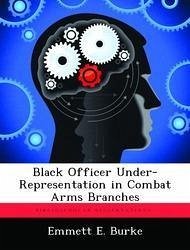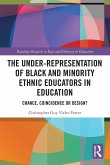Although the integration of Blacks into the Army is a success story worth emulating, U.S. Army statistics indicate that Blacks do not participate evenly across officer career fields. In particular, Blacks are under-represented among the combat arms. This condition can be termed occupational segregation. The U.S. Army's leadership is concerned about the low number of Black officers serving in the combat arms for two reasons. First, the low number of Blacks in the combat arms reduces the diversity and perhaps the credibility of the U.S. Army's leadership. Second, it makes it difficult for Blacks to attain appropriate representation among general officers because seventy-two percent of the U.S. Army's generals are selected from the combat arms. To understand why so few Blacks select combat arms branches this study researched the U.S. Army's ROTC program at Historically Black College and Universities (HBCUs). This was appropriate because three-quarters of all officers are commissioned through ROTC and the majority of Black officers are commissioned from HBCUs. The research revealed that there were two significant factors that determined the branch assignments of Black cadets: cadet performance and cadet attitude toward service. Black HBCU cadets compete adequately with other cadets when it comes to on-campus ROTC scores but they do poorly at Advanced Camp. Black cadets were less likely to consider the Army fair and had a negative perception of combat arms branches. These personal attitudes toward service have had a negative influence on performance. Additionally, Black cadets lack combat arms mentors to provide them the needed motivation, tutelage and guidance. The Army must begin to mitigate these factors and reverse the under-representation of Black officers in combat arms. To increase representation of Black officers, the Army must train HBCU cadets to perform better at Advanced Camp, prepare HBCU cadets for the demands and unique culture of the Army, and commission
Hinweis: Dieser Artikel kann nur an eine deutsche Lieferadresse ausgeliefert werden.
Hinweis: Dieser Artikel kann nur an eine deutsche Lieferadresse ausgeliefert werden.








